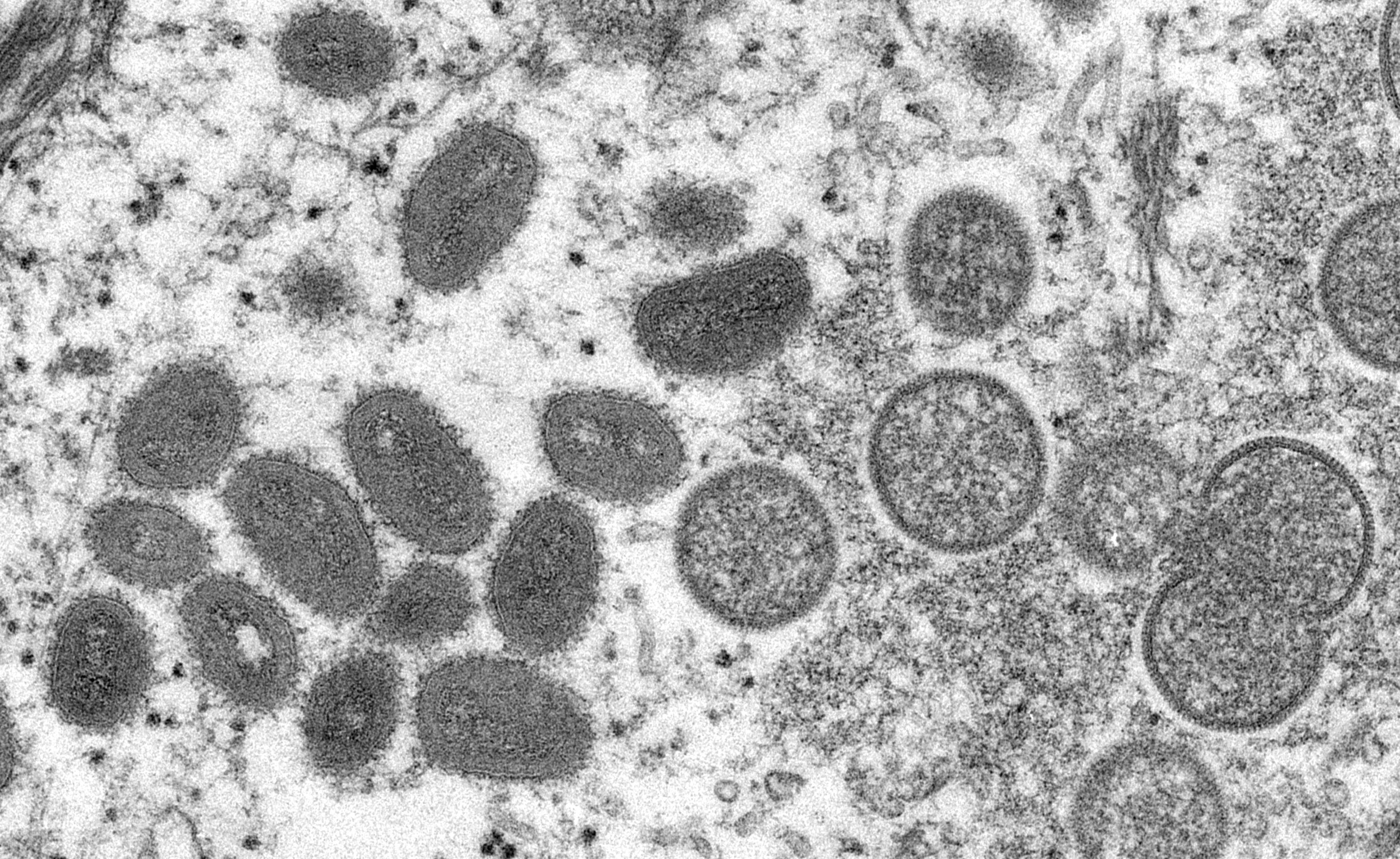© Turkuvaz Haberleşme ve Yayıncılık 2024
Health authorities in the United States, Canada and Europe have detected dozens of suspected or confirmed cases of monkeypox since early May, according to health authorities and local media reports, marking an unusual outbreak in Europe of a disease typically limited to Africa.
Italy and Sweden became the latest countries on Thursday to report cases of the rare disease monkeypox. Canada has also recently reported the disease and said that it was investigating more than a dozen suspected cases of monkeypox, after Spain and Portugal detected more than 40 possible and verified cases.
Health authorities in Canada's Quebec province announced they were investigating at least 13 suspected cases of monkeypox, the public broadcaster CBC reported Wednesday.
The cases were flagged to Montreal authorities after diagnoses were made in several clinics specializing in sexually transmitted and blood-borne infections.
The Public Health Agency of Canada (PHAC) told CBC it had called on "public health authorities and laboratory partners across Canada to be on alert and investigate any potential cases."
Portugal's General Directorate for Health said that it was also investigating 15 suspected cases and that all were identified this month in the area around the capital, Lisbon.
All the Portuguese cases involve men, most of them young, authorities said. They have skin lesions and were reported to be in stable condition. Officials did not say if the men had a history of travel to Africa or any links with recent cases in Britain or elsewhere.
In the U.S. on Wednesday, state health officials in Massachusetts reported a case of monkeypox in a resident who had traveled to Canada and investigators are looking into whether it is connected to the European outbreaks.

Confirming nine cases since May 6, the U.K. said Wednesday that British health authorities had identified two new cases of monkeypox, one in London and another in southeast England. They said that neither patient had previously traveled to Africa and that it was possible they were infected in the U.K. The cases had no known links to other previously confirmed patients, suggesting there may be multiple chains of monkeypox transmission happening in the country.
Dr. Susan Hopkins, the chief medical adviser of Britain’s Health Security Agency, said the latest cases, alongside the other infections reported in Europe, "confirms our initial concerns that there could be spread of monkeypox within our communities.”
The agency said recent cases had been seen "predominantly in gay, bisexual or men who have sex with men,” although it noted it was unclear how exactly people had been infected.
The illness, from which most people recover within several weeks and has only been fatal in rare cases, has infected thousands of people in parts of Central and Western Africa in recent years but is rare in Europe and North Africa.
The World Health Organization (WHO) said on Tuesday it was coordinating with the U.K. and European health officials over the new outbreaks.
"We really need to better understand the extent of monkeypox in endemic countries ... to really understand how much is circulating and the risk that it poses for people who are living there, as well as the risk of exportation," infectious disease epidemiologist Dr. Maria Van Kerkhove said at a WHO press conference on Tuesday on global health issues.
Monkeypox has not previously been documented to have spread through sex, but can be transmitted through close contact with infected people, their clothing or bedsheets.
Earlier this week, the U.K. agency reported four cases of monkeypox they said had been spread among gay and bisexual men in London. The agency said the risk to the general population "remains low.”
Health authorities in Spain’s central Madrid region said late Wednesday that they were assessing 23 possible cases of monkeypox. They said that all of the suspected cases are young men and that the majority of them had sex with other men.
The disease belongs to a family of viruses that includes smallpox. Most people recover from monkeypox within weeks, but the WHO says the disease is fatal for up to one in 10 infected people. Sporadic cases of monkeypox have been seen previously in countries, including Britain and the U.S., but nearly all have been in people who were likely infected during their travels in Africa.
Dr. Ibrahim Soce Fall, the WHO’s assistant director-general for emergency response, said the spread of monkeypox in the U.K. needed to be investigated to understand how the disease was being transmitted among men who have sex with other men.
Fall said health officials also still need a better understanding of how monkeypox spreads in general, even in the countries where it is endemic.
He noted that while there were more than 6,000 reported cases in Congo and about 3,000 cases in Nigeria last year, there are still "so many unknowns in terms of the dynamics of transmission.”
Britain previously reported three earlier cases of monkeypox, two involving people who lived in the same household and the third someone who had traveled to Nigeria, where the disease occurs frequently in animals.
The virus has typically spread to people from infected animals like rodents, although human-to-human transmission has been known to occur.
Some British experts said it was too soon to conclude that monkeypox had spread through sexual contact, although the outbreak there suggested that possibility.
"The recent cases suggest a potentially novel means of spread,” Neil Mabbott, a disease expert at the University of Edinburgh, said, adding that related viruses were known to spread via sex.
Keith Neal, an infectious diseases expert at the University of Nottingham, said the transmission might not have occurred through sexual activity but just "the close contact associated with sexual intercourse.”
Monkeypox typically causes fever, chills, a rash and lesions on the face or genitals resembling those caused by smallpox. A vaccine developed against smallpox has been approved for monkeypox, and several anti-virals also appear to be effective.
